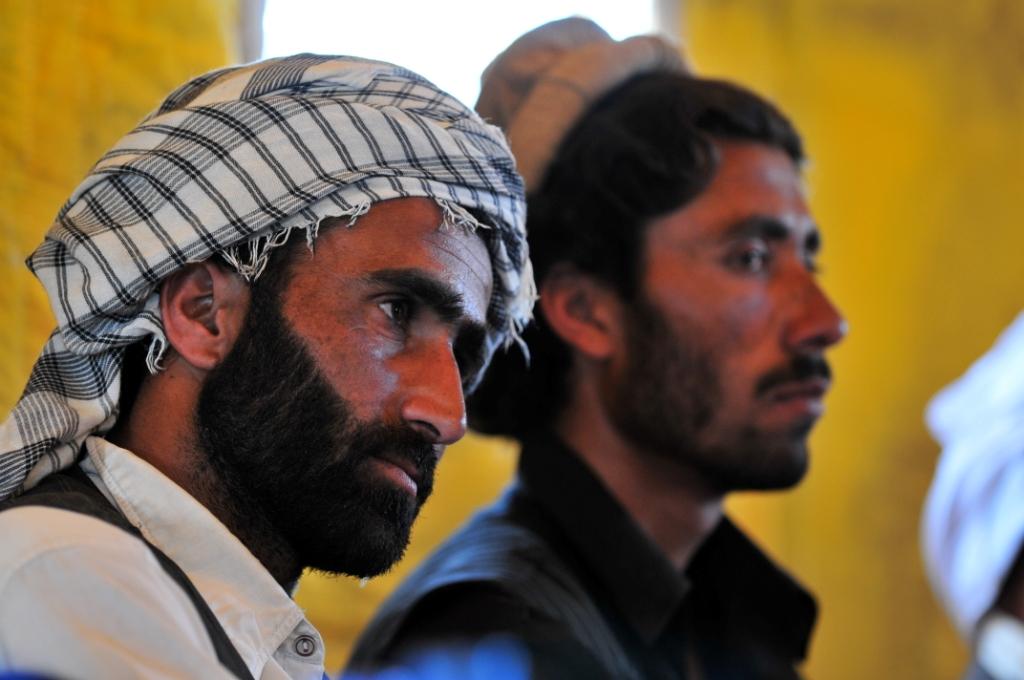How is the honeymoon between China and the Taliban going?

The Taliban hope that China will provide them with the assistance they need to get Afghanistan back on track. The deepening of El Pais
The apparent – and cautious – honeymoon between the Taliban and China continues and becomes tighter. One day after the militia announced the composition of its government in Afghanistan, which will include only members of the group and no women, Beijing gave its blessing on what it called a "necessary step" to end "three weeks of anarchy ”and begin the restoration of order and reconstruction. He also confirmed his readiness to maintain communication with the new leaders of Central Asia.
Chinese Foreign Minister Wang Yi announced the sending of emergency humanitarian aid to Afghanistan, to which China will send a shipment of wheat, winter equipment, vaccines and medicines worth around 26 million euros. The two countries share a small border, about 70 kilometers long.
Contacts between Beijing and the Taliban, and with other neighboring countries that have interests in Afghanistan, have been intense in recent weeks since the Chinese foreign minister met with representatives of the fundamentalist group in the city of Tianjin in late July. Wang was speaking Wednesday during a videoconference meeting with diplomatic representatives from six neighboring nations: Pakistan, China, Turkmenistan, Uzbekistan, Tajikistan and Iran. Last week it was his deputy minister Wu Jianghao who spoke to the then deputy director of the Taliban political bureau in Qatar, Abdul Salam Hanafi, now deputy prime minister in Kabul. A regional security summit in Dushanbe next week will address the Afghan situation and could be attended by Chinese President Xi Jinping himself.
The feelings between the new Afghan leadership and China are mutual: they both hope to benefit from the relationship, but want proof that they can trust each other. Xi Jinping's government has expressed its willingness to cooperate with the military and assist in the reconstruction process following the withdrawal of the United States and its allies after 20 years of war; In the long run, and if the country manages to stabilize, it is interested in the mineral riches that may exist in the Afghan subsoil, the extraction of which has been made impossible by complicated geography and decades of constant conflict.
In exchange for its assistance, Beijing asks for guarantees that the Taliban will not allow their territory to be used for possible terrorist attacks against their region of Xinjiang, bordering Afghanistan and home to the Uyghur Muslim minority, where attacks have been carried out in the past. which Beijing attributes to Uyghur radical groups.
“China knows it needs to be more active, diplomatically and politically, and it is doing it. He also knows that he will have to manage the situation largely through Pakistan, the great ally of the Taliban. And he has reservations about the significance of the assurances provided by the Taliban and the extent to which Pakistan can put pressure on them, ”notes Andrew Small of the German Marshall Fund.
The exchanges of messages in this sense continue. If Hanafi insisted to Wu on Friday that his group "will never allow anyone to use Afghan soil to threaten China's interests," Wang Yi on Wednesday demanded that the militia break with extremist groups and take action against them. "All parties should intensify intelligence sharing and border control cooperation to capture and eliminate terrorist groups that have infiltrated Afghanistan," the Chinese minister said.
Beijing, Small said, “does not want militant infiltration or a permissive environment for them, for any group that could cause problems for China or its neighbors. And this includes a broad spectrum of formations, including Pakistani Taliban groups ”. In this expert's opinion, Xi's government is even more concerned with the vulnerability of "Chinese targets in neighboring countries and, in some cases, with the stability of neighboring states themselves, such as Pakistan, than with the common border, which is very narrow and geographically very difficult to cross ". Nor does he want a pariah state operating under international sanctions, so he wants to ensure that an acceptable government emerges. And, in any case, "China does not want to be involved in an active intervention, certainly not military, but not in any other way either". Too much political influence could make it too visible a target.
For their part, the Taliban are looking to Beijing to provide desperately needed assistance to get the country back on track, and diplomatic support to avoid the isolation the group experienced during its first stint at the helm of Afghanistan between 1996. and 2001. In an interview with the Italian newspaper La Repubblica last week, group spokesman Zabihullah Mujahid called Beijing "our most important partner" and "an extraordinary opportunity for us, because it is ready to invest and rebuild our country".
“There are rich copper mines in the country which, thanks to the Chinese, can be put back into operation and modernized. Furthermore, China is our ticket to markets around the world, ”the spokesperson said.
This is a machine translation from Italian language of a post published on Start Magazine at the URL https://www.startmag.it/mondo/cina-talebani-luna-di-miele/ on Sun, 12 Sep 2021 06:00:35 +0000.
